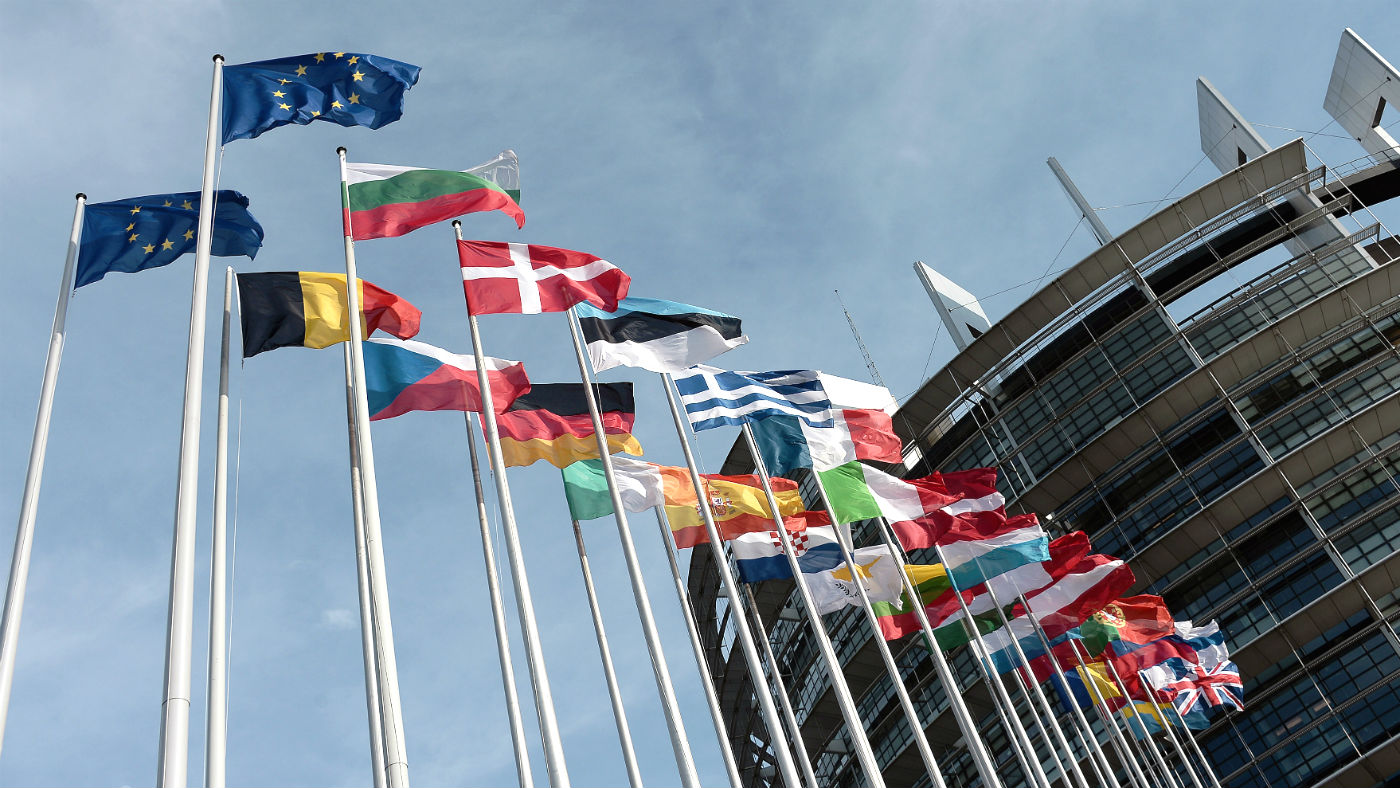Eurosceptics set for breakthrough at EU Parliament
Snapshot of polls suggest anti-EU parties will grow by more than 60% at next May’s election

A free daily email with the biggest news stories of the day – and the best features from TheWeek.com
You are now subscribed
Your newsletter sign-up was successful
Eurosceptic parties are poised for significant growth in their representation at the European Parliament, a survey of national opinion polls suggests.
Between them, they are forecast to end up with about 60% more MEPs after next May’s elections, winning 122 of the 705 seats.
The snapshot of polls is “rough and ready”, says Reuters, but nevertheless “indicates a clear strengthening for movements outside the mainstream”. It will pile further “pressure on EU leaders pressing for deeper integration after Brexit”.
The Week
Escape your echo chamber. Get the facts behind the news, plus analysis from multiple perspectives.

Sign up for The Week's Free Newsletters
From our morning news briefing to a weekly Good News Newsletter, get the best of The Week delivered directly to your inbox.
From our morning news briefing to a weekly Good News Newsletter, get the best of The Week delivered directly to your inbox.
The numbers reflect the popularity of anti-establishment parties at national level across Europe. These include Italy’s 5-Star Movement and The League, now in a governing coalition, as well as Alternative for Germany, Marine Le Pen’s National Rally (formerly the Nation Front) and Geert Wilders’ Dutch Freedom Party.
And the challenge to Brussels may intensify. Steve Bannon, the architect behind Donald Trump’s shock 2016 presidential win, is planning to launch a new “movement” to coordinate and bolster the anti-EU vote, and has reportedly met a series of European right-wing leaders including Le Pen, Alice Weidel of Alternative for Germany, Hungary's Viktor Orban and former UKIP leader Nigel Farage.
Bannon also announced plans to develop a new “supergroup” within the European parliament, The Independent reports. He expressed the hope that it would attract up to a third of MPs after the elections next May and hold real sway over future direction of the bloc.
However, says Reuters, capturing more than 15-20% of the European Parliament for parties firmly hostile to the EU “looks from the survey evidence to be an uphill struggle for the former White House strategist”.
A free daily email with the biggest news stories of the day – and the best features from TheWeek.com
The EU’s main Eurosceptic parties are currently spread across several transnational party groupings in the Parliament.
New party alignments in the next EU legislature will depend heavily on horse-trading after the elections, but if a unified anti-EU group were to emerge its numbers would be offset by the loss of UKIP, whose 19 MEPs will leave when Britain quits the EU in March.
-
 Political cartoons for February 16
Political cartoons for February 16Cartoons Monday’s political cartoons include President's Day, a valentine from the Epstein files, and more
-
 Regent Hong Kong: a tranquil haven with a prime waterfront spot
Regent Hong Kong: a tranquil haven with a prime waterfront spotThe Week Recommends The trendy hotel recently underwent an extensive two-year revamp
-
 The problem with diagnosing profound autism
The problem with diagnosing profound autismThe Explainer Experts are reconsidering the idea of autism as a spectrum, which could impact diagnoses and policy making for the condition
-
 Epstein files topple law CEO, roil UK government
Epstein files topple law CEO, roil UK governmentSpeed Read Peter Mandelson, Britain’s former ambassador to the US, is caught up in the scandal
-
 Iran and US prepare to meet after skirmishes
Iran and US prepare to meet after skirmishesSpeed Read The incident comes amid heightened tensions in the Middle East
-
 Grok in the crosshairs as EU launches deepfake porn probe
Grok in the crosshairs as EU launches deepfake porn probeIN THE SPOTLIGHT The European Union has officially begun investigating Elon Musk’s proprietary AI, as regulators zero in on Grok’s porn problem and its impact continent-wide
-
 Israel retrieves final hostage’s body from Gaza
Israel retrieves final hostage’s body from GazaSpeed Read The 24-year-old police officer was killed during the initial Hamas attack
-
 China’s Xi targets top general in growing purge
China’s Xi targets top general in growing purgeSpeed Read Zhang Youxia is being investigated over ‘grave violations’ of the law
-
 Panama and Canada are negotiating over a crucial copper mine
Panama and Canada are negotiating over a crucial copper mineIn the Spotlight Panama is set to make a final decision on the mine this summer
-
 Europe moves troops to Greenland as Trump fixates
Europe moves troops to Greenland as Trump fixatesSpeed Read Foreign ministers of Greenland and Denmark met at the White House yesterday
-
 Why Greenland’s natural resources are nearly impossible to mine
Why Greenland’s natural resources are nearly impossible to mineThe Explainer The country’s natural landscape makes the task extremely difficult